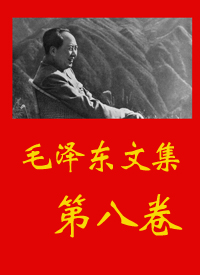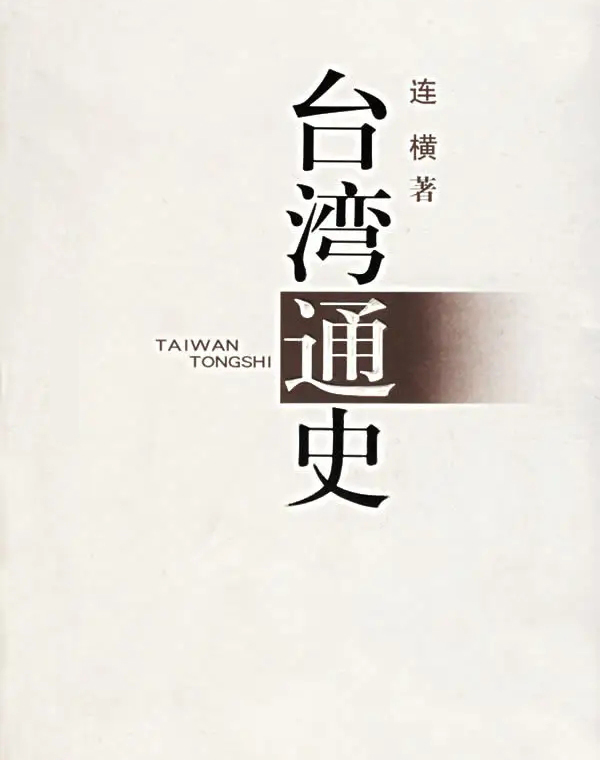It seemed that this garden, created in olden days to conceal wanton mysteries, had been transformed and become fitted to shelter chaste mysteries. There were no longer either arbors, or bowling greens, or tunnels, or grottos; there was a magnificent, dishevelled obscurity falling like a veil over all. Paphos had been made over into Eden. It is impossible to say what element of repentance had rendered this retreat wholesome. This flower-girl now offered her blossom to the soul. This coquettish garden, formerly decidedly compromised, had returned to virginity and modesty. A justice assisted by a gardener, a goodman who thought that he was a continuation of Lamoignon, and another goodman who thought that he was a continuation of Lenotre, had turned it about, cut, ruffled, decked, moulded it to gallantry; nature had taken possession of it once more, had filled it with shade, and had arranged it for love.
There was, also, in this solitude, a heart which was quite ready. Love had only to show himself; he had here a temple composed of verdure, grass, moss, the sight of birds, tender shadows, agitated branches, and a soul made of sweetness, of faith, of candor, of hope, of aspiration, and of illusion.
Cosette had left the convent when she was still almost a child; she was a little more than fourteen, and she was at the "ungrateful age"; we have already said, that with the exception of her eyes, she was homely rather than pretty; she had no ungraceful feature, but she was awkward, thin, timid and bold at once, a grown-up little girl, in short.
Her education was finished, that is to say, she has been taught religion, and even and above all, devotion; then "history," that is to say the thing that bears that name in convents, geography, grammar, the participles, the kings of France, a little music, a little drawing, etc.; but in all other respects she was utterly ignorant, which is a great charm and a great peril. The soul of a young girl should not be left in the dark; later on, mirages that are too abrupt and too lively are formed there, as in a dark chamber. She should be gently and discreetly enlightened, rather with the reflection of realities than with their harsh and direct light. A useful and graciously austere half-light which dissipates puerile fears and obviates falls. There is nothing but the maternal instinct, that admirable intuition composed of the memories of the virgin and the experience of the woman, which knows how this half-light is to be created and of what it should consist.
Nothing supplies the place of this instinct. All the nuns in the world are not worth as much as one mother in the formation of a young girl's soul.
Cosette had had no mother. She had only had many mothers, in the plural.
As for Jean Valjean, he was, indeed, all tenderness, all solicitude; but he was only an old man and he knew nothing at all.
Now, in this work of education, in this grave matter of preparing a woman for life, what science is required to combat that vast ignorance which is called innocence!
Nothing prepares a young girl for passions like the convent. The convent turns the thoughts in the direction of the unknown. The heart, thus thrown back upon itself, works downward within itself,since it cannot overflow, and grows deep, since it cannot expand. Hence visions, suppositions, conjectures, outlines of romances, a desire for adventures, fantastic constructions, edifices built wholly in the inner obscurity of the mind, sombre and secret abodes where the passions immediately find a lodgement as soon as the open gate permits them to enter. The convent is a compression which, in order to triumph over the human heart, should last during the whole life.
On quitting the convent, Cosette could have found nothing more sweet and more dangerous than the house in the Rue Plumet. It was the continuation of solitude with the beginning of liberty; a garden that was closed, but a nature that was acrid, rich, voluptuous,and fragrant; the same dreams as in the convent, but with glimpses of young men; a grating, but one that opened on the street.
Still, when she arrived there, we repeat, she was only a child. Jean Valjean gave this neglected garden over to her. "Do what you like with it," he said to her. This amused Cosette; she turned over all the clumps and all the stones, she hunted for "beasts"; she played in it, while awaiting the time when she would dream in it; she loved this garden for the insects that she found beneath her feet amid the grass, while awaiting the day when she would love it for the stars that she would see through the boughs above her head.
And then, she loved her father, that is to say, Jean Valjean, with all her soul, with an innocent filial passion which made the goodman a beloved and charming companion to her. It will be remembered that M. Madeleine had been in the habit of reading a great deal. Jean Valjean had continued this practice; he had come to converse well; he possessed the secret riches and the eloquence of a true and humble mind which has spontaneously cultivated itself. He retained just enough sharpness to season his kindness; his mind was rough and his heart was soft. During their conversations in the Luxembourg, he gave her explanations of everything, drawing on what he had read, and also on what he had suffered. As she listened to him, Cosette's eyes wandered vaguely about.
This simple man sufficed for Cosette's thought, the same as the wild garden sufficed for her eyes. When she had had a good chase after the butterflies, she came panting up to him and said: "Ah! How I have run!" He kissed her brow.
Cosette adored the goodman. She was always at his heels. Where Jean Valjean was, there happiness was.Jean Valjean lived neither in the pavilion nor the garden; she took greater pleasure in the paved back courtyard, than in the enclosure filled with flowers, and in his little lodge furnished with straw-seated chairs than in the great drawing-room hung with tapestry, against which stood tufted easy-chairs. Jean Valjean sometimes said to her, smiling at his happiness in being importuned: "Do go to your own quarters! Leave me alone a little!"
She gave him those charming and tender scoldings which are so graceful when they come from a daughter to her father.
"Father, I am very cold in your rooms; why don't you have a carpet here and a stove?"
"Dear child, there are so many people who are better than I and who have not even a roof over their heads."
"Then why is there a fire in my rooms, and everything that is needed?"
"Because you are a woman and a child."
"Bah! must men be cold and feel uncomfortable?"
"Certain men."
"That is good, I shall come here so often that you will be obliged to have a fire."
And again she said to him:--
"Father, why do you eat horrible bread like that?"
"Because, my daughter."
"Well, if you eat it, I will eat it too."
Then, in order to prevent Cosette eating black bread, Jean Valjean ate white bread.
Cosette had but a confused recollection of her childhood. She prayed morning and evening for her mother whom she had never known. The Thenardiers had remained with her as two hideous figures in a dream. She remembered that she had gone "one day, at night," to fetch water in a forest. She thought that it had been very far from Paris. It seemed to her that she had begun to live in an abyss, and that it was Jean Valjean who had rescued her from it. Her childhood produced upon her the effect of a time when there had been nothing around her but millepeds, spiders, and serpents. When she meditated in the evening, before falling asleep, as she had not a very clear idea that she was Jean Valjean's daughter, and that he was her father, she fancied that the soul of her mother had passed into that good man and had come to dwell near her.
When he was seated, she leaned her cheek against his white hair, and dropped a silent tear, saying to herself: "Perhaps this man is my mother."
Cosette, although this is a strange statement to make, in the profound ignorance of a girl brought up in a convent,-- maternity being also absolutely unintelligible to virginity,-- had ended by fancying that she had had as little mother as possible. She did not even know her mother's name. Whenever she asked Jean Valjean, Jean Valjean remained silent. If she repeated her question, he responded with a smile. Once she insisted; the smile ended in a tear.
This silence on the part of Jean Valjean covered Fantine with darkness.
Was it prudence? Was it respect? Was it a fear that he should deliver this name to the hazards of another memory than his own?
So long as Cosette had been small, Jean Valjean had been willing to talk to her of her mother; when she became a young girl, it was impossible for him to do so. It seemed to him that he no longer dared. Was it because of Cosette? Was it because of Fantine? He felt a certain religious horror at letting that shadow enter Cosette's thought; and of placing a third in their destiny. The more sacred this shade was to him, the more did it seem that it was to be feared. He thought of Fantine, and felt himself overwhelmed with silence.
Through the darkness, he vaguely perceived something which appeared to have its finger on its lips. Had all the modesty which had been in Fantine, and which had violently quitted her during her lifetime, returned to rest upon her after her death, to watch in indignation over the peace of that dead woman, and in its shyness, to keep her in her grave? Was Jean Valjean unconsciously submitting to the pressure? We who believe in death, are not among the number who will reject this mysterious explanation.
Hence the impossibility of uttering, even for Cosette, that name of Fantine.
One day Cosette said to him:--
"Father, I saw my mother in a dream last night. She had two big wings. My mother must have been almost a saint during her life."
"Through martyrdom," replied Jean Valjean.
However, Jean Valjean was happy.
When Cosette went out with him, she leaned on his arm, proud and happy, in the plenitude of her heart. Jean Valjean felt his heart melt within him with delight, at all these sparks of a tenderness so exclusive, so wholly satisfied with himself alone. The poor man trembled, inundated with angelic joy; he declared to himself ecstatically that this would last all their lives; he told himself that he really had not suffered sufficiently to merit so radiant a bliss, and he thanked God, in the depths of his soul, for having permitted him to be loved thus, he, a wretch, by that innocent being.
这园子,当初曾被用来掩盖邪恶的秘密,后来似乎已变得适合于庇护纯洁的秘密了。那里已没有了摇篮、浅草地、花棚、石窟,而只是一片郁郁葱葱、了无修饰、处处笼罩在绿荫中的胜地了。帕福斯①已恢复了伊甸园的原来面目。不知道是一种什么悔恨心情圣化了这块清静土。这个献花女现在只向灵魂献出她的花朵了。这个俏丽的园子,从前曾严重地被玷污,如今又回到幽娴贞静的处女状态。一个主席在一个园丁的帮助下,一个自以为是拉莫瓦尼翁②的后继者的某甲和一个自以为是勒诺特尔③的后继者的某乙,把它拿来扭,剪,揉,修饰,打扮,以图博取美人的欢心,大自然却把它收回,使它变得葱茏幽静,适合于正常的爱。
①帕福斯(Paphos),塞浦路斯岛上一城市,以城里的维纳斯女神庙著名。
②拉莫瓦尼翁(ChrétienAFrancoisdeLamoignon,1644?709),巴黎法院第一任院长之子,布瓦洛曾称赞过他的别墅。
③勒诺特尔(LeNoFtre,1613?700),法国园林设计家。
在这荒园里,也有了一颗早已准备好了的心。爱随时都可以出现,它在这里已有了一座由青林、绿草、苔藓、鸟雀的叹息、柔和的阴影、摇曳的树枝所构成的寺庙和一个由柔情、信念、诚意、希望、志愿和幻想所构成的灵魂。
珂赛特离开修院时,几乎还是个孩子,她才十四岁零一点,并且是在那种“不讨好”的年纪里,我们说过,她除了一双眼睛以外,不但不标致,而且还有点丑,不过也没有什么不顺眼的地方,只显得有些笨拙、瘦弱、既不大方,同时又莽撞,总之,是个大孩子的模样。
她的教育已经结束,就是说,她上宗教课,甚至,尤其是,也学会了祈祷,还有“历史”,也就是修院中人这样称呼的那种东西:地理、语法、分词、法国的历代国王、一点音乐、画一个鼻子,等等,此外什么也不懂,这是种惹人爱的地方,但也是一种危险。一个小姑娘的心灵不能让它蒙昧无知,否则日后她心灵里会出现过分突然、过分强烈的影象,正如照相机的暗室那样。它应当慢慢地、适度地逐渐接触光明,应当先接触实际事物的反映,而不是那种直接、生硬的光线。半明的光,严肃而温和的光,对解除幼稚的畏惧心情和防止堕落是有好处的。只有慈母的本能,含有童贞时期的回忆和婚后妇女的经验的那种令人信服的直觉,才知道怎样并用什么来产生这种半明的光。任何东西都不能替代这种本能。在培养一个少女的心灵方面,世界上所有的修女也比不上一个母亲。
珂赛特不曾有过母亲,只有过许许多多的嬷嬷。
至于冉阿让,他心里有的是种种慈爱和种种关怀,但他究竟只是个啥也不懂的老人。
而在这种教育里,在这种为一个女性迎接人生作好准备的严肃事业里,得用多少真知灼见来向这个被称作天真的极其愚昧的状态进行斗争!
最能使少女具备发生狂热感情的条件的莫过于修院。修院把人的思想转向未知的世界。被压抑了的心,它无法扩展,便向内挖掘,无法开放,便钻向深处。因而产生种种幻象,种种迷信,种种猜测,种种空中楼阁,种种向往中的奇遇,种种怪诞的构思,种种全部建造在心灵黑暗处的海市蜃楼,种种狂情热爱一旦闯进铁栏门便立即定居下来的那些隐蔽和秘密的处所。修院为了驾驭人心,便对人心加以终生的钳制。
对于初离修院的珂赛特来说,再没有比卜吕梅街这所房子更美好,也更危险的了。这是狐寂的继续,也是自由的开始;一个关闭了的园子,却又有浓郁、畅茂、伤情、芳美的自然景物;心里仍怀着修院中那些梦想,却又能偶然瞥见一些少年男子的身影;有一道铁栏门,却又临街。
不过,我们重复一下,当她来到这里时,她还只是个孩子。冉阿让把荒园交付给她,说道:“你想在这里干啥就干啥。”珂赛特大为高兴,她翻动所有的草丛和石块,找“虫子”,她在那里玩耍,还没到触景生情的时候,她爱这园子,是因为她能在草中脚下找到昆虫,而不是为能从树枝中抬头望见星光。此外,她爱她的父亲,就是说,冉阿让,她以她的整个灵魂爱着他,以儿女孝亲的天真热情待这老人,把他作为自己一心依恋的伴侣。我们记得,马德兰先生读过不少书,冉阿让仍不断阅读,他因而获得谈话的能力。他知识丰富,有一个谦虚、真诚、有修养的人从自我教育中得来的口才。他还保留了一点点刚够调节他的厚道的粗糙性子,这是个举动粗鲁而心地善良的人。在卢森堡公园里,当他俩并坐交谈时,他常从书本知识和亲身磨难中汲取资料,对一切问题作出详尽的解释。珂赛特一面细听,一面望空怀想。
这个淳朴的人能使珂赛特的思想感到满足,正如这个荒园在游戏方面使她满意一样。当她追够了蝴蝶,喘吁吁地跑到他身边说:“啊!我再也跑不动了!”他便在她额头上亲一个吻。
珂赛特极爱这老人。她随时跟在他后面。冉阿让待在哪儿,哪儿便有幸福。冉阿让既不住楼房,也不住在园子里,她便感到那长满花草的园子不如后面的那个石板院子好,那间张挂壁衣、靠墙摆着软垫围椅的大客厅也不如那间只有两张麦秸椅的小屋好。有时,冉阿让因被她纠缠而高兴,便带笑说:“还不到你自己的屋子里去!让我一个人好好歇一会吧!”
这时,她便向他提出那种不顾父女尊卑、娇憨动人、极有风趣的责问:
“爹,我在您屋子里冻得要死了!您为什么不在这儿铺块地毯放个火炉呀?”
“亲爱的孩子,多少人比我强多了,可他们头上连块瓦片也没有呢。”
“那么,我屋子里为什么生着火,啥也不缺呢?”
“因为你是个女人,并且是个孩子。”
“不对!难道男人便应当挨冻受饿吗?”
“某些男人。”
“好吧,那么我以后要时时刻刻待在这儿,让您非生火不可。”
她还对他这样说:
“爹,您为什么老吃这种坏面包?”
“不为什么,我的女儿。”
“好吧,您要吃这种,我也就吃这种。”
于是,为了不让珂赛特吃黑面包,冉阿让只好改吃白面包。
对童年珂赛特只是模模糊糊地记得一些。她回忆早上和晚上为她所不认识的母亲祈祷。德纳第夫妇在她的记忆中好象是梦里见过的两张鬼脸。她还记得“某天晚上”她曾到一个树林里去取过水。她认为那是离巴黎很远的地方。她仿佛觉得她从前生活在一个黑洞里,是冉阿让把她从那洞里救出来的。在她的印象中,她的童年是一个在她的前后左右只有蜈蚣、蜘蛛和蛇的时期。她不大明白她怎么会是冉阿让的女儿,他又怎么会是她的父亲,她在夜晚入睡前想到这些事时,她便认为她母亲的灵魂已附在这老人的身体里,来和她住在一起了。
在他坐着的时候,她常把自己的脸靠在他的白发上,悄悄掉下一滴眼泪,心里想道:“他也许就是我的母亲吧,这人!”
还有一点,说来很奇怪:珂赛特是个由修院培养出来的姑娘,知识非常贫乏,母性,更是她在童贞时期绝对无法理解的,因而她最后想到她只是尽可能少的有过母亲。这位母亲,她连名字也不知道。每次她向冉阿让问起她母亲的名字,冉阿让总是默不作声。要是她再问,他便以笑容作答。有一次,她一定要问个清楚,他那笑容便成了一眶眼泪。
冉阿让守口如瓶,芳汀这名字便也湮灭了。
这是出于谨慎小心吗?出于敬意吗?是害怕万一传到别人耳朵里也会引起一些回忆吗?
在珂赛特还小的时候,冉阿让老爱和她谈到她的母亲,当她成了大姑娘,就不能这样了。他感到他不敢谈。这是因为珂赛特呢,还是因为芳汀?他感到有种敬畏鬼神的心情使他不能让这灵魂进入珂赛特的思想,不能让一个死去的人在他们的命运中占一个第三者的地位。在他心中,那幽灵越是神圣,便越是可怕。他每次想到芳汀,便感到一种压力,使他无法开口。他仿佛看见黑暗中有个什么东西象一只按在嘴唇上的手指。芳汀原是个识羞耻的人,但在她生前,羞耻已粗暴地从她心中被迫出走了,这羞耻心是否在她死后又回到她的身上,悲愤填膺地护卫着死者的安宁,横眉怒目地在她坟墓里保护着她呢?冉阿让是不是已在不知不觉中感到这种压力呢?我们这些信鬼魂的人是不会拒绝这种神秘的解释的。因此,即使在珂赛特面前,也不可能提到芳汀这名字了。
一天,珂赛特对他说:
“爹,昨晚我在梦里看见了我的母亲。她有两个大翅膀。我母亲在她活着的时候,应当已到圣女的地位吧。”
“通过苦难。”冉阿让回答说。
然而,冉阿让是快乐的。
珂赛特和他一道出门时,她总紧靠在他的臂膀上,心里充满了自豪和幸福。冉阿让知道这种美满的温情是专属于他一个人的,感到自己心也醉了。这可怜的汉子沉浸在齐天的福分里,乐到浑身抖颤,他暗自庆幸的将能这样度此一生,他心里想他所受的苦难确还不够,不配享受这样美好的幸福,他并从灵魂的深处感谢上苍,让他这样一个毫无价值的人受到这个天真孩子如此真诚的爱戴。






